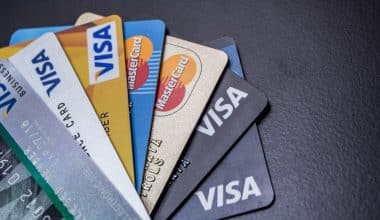Mastering your personal finances can be one of the most important things you do for yourself and your future. However, for many people, we have not been in environments where smart money habits were encouraged. To help you determine the best way to become a master of your personal finance, here are some tips that can help you decide the best course of action:
#1. Stay on Top of Taxes
When it comes to personal finance, don’t forget the importance of tax management. There’s a lot to remember, from tax fraud detection to avoiding penalties when handling your taxes. If you feel it’s a bit overwhelming to handle on your own, consider hiring a tax professional to help you manage your tax payments and more. Tax debt or other tax issues can have you feeling like you’re drowning, so do your best to manage your taxes in a smart way.
#2. Minimize Credit Card Use
To build personal wealth, it’s best to avoid weight. One of the leading causes of debt is the use of credit cards. It’s tempting to use them, but the thing is that your payments will catch up to you, and interest is no fun.
Only use credit cards when needed and get by with the minimum to build good credit. Otherwise, don’t treat them as disposable money. A couple of credit cards can help you with your credit. But too many credit cards aren’t a good idea.
#3. Save for Emergencies
It’s wise to have money aside for emergencies, no matter what may happen. As the pandemic taught us, job loss and global crises can affect our personal income and financial health, so it’s best to be prepared.
From an accident to medical bills, saving for emergencies can help ensure you’re taken care of when needed. Open a savings account at a different bank than your main one to set aside money specifically reserved for emergencies. This can make it easier to leave that money reserved and not dip into it for other things.
#4. Save to Invest
Along with setting aside money for emergencies, you should save money to build a better future through investments. Saving enough money to invest can help you grow your money more than ever. While you can start investing with less money, substantial growth usually happens with larger investments.
Consider hiring a financial advisor who can guide you in managing your wealth and investments so you can see more financial growth than you ever thought possible. Whether you invest in stocks or real estate, if you want to see your money grow, investments can make it happen.
#5. Have a Budget
Creating a budget is a smart move if you want to keep an eye on the kind of money that’s coming in and where it’s all going. A budget can help you save more, spend less, and understand whether or not it would be wise to add income to your monthly budget.
From old-time planners to budgeting apps, there are plenty of ways to keep a budget. Just make sure you’re maintaining one monthly so that you always keep track of what’s going on with your money.
In Conclusion
If you’re hoping to manage your personal finance while building financial wealth, these tips can help get you started. It may mean changing some habits, but financial growth is possible when you keep your goals in mind.
From budgeting to cutting back on expenses to investing your money, there are some things that make managing your personal finance that much easier.






